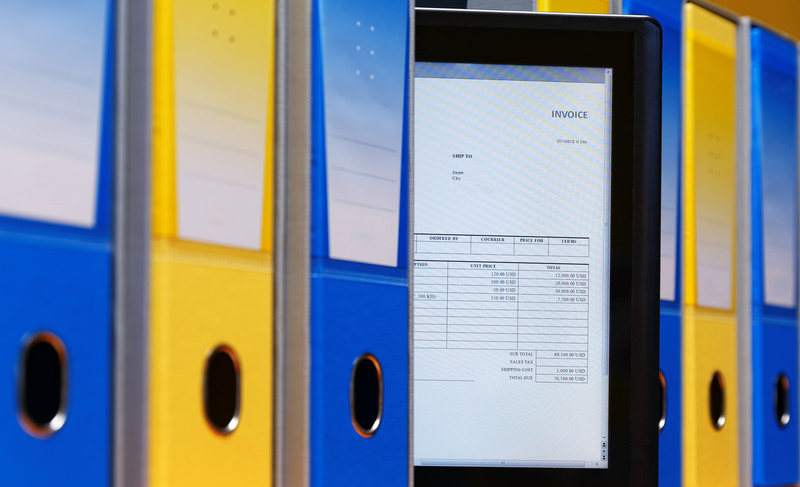Document scanning and conversion of government papers into digital format ensures more efficiency, transparency and reliability that are necessary for good governance. Good governance reduces duplication of work, communication costs, faster citizen services and increased transparency in the functioning of various government departments. Governments at all high levels have a mandate to provide services, protect the society and make the economy prosper. For any government function, accurate and reliable data is necessary and this can be achieved with digitization of paper-based data.

Digitizing Government Records to Be Compliant with Section 508
Section 508 of the United States Workforce Rehabilitation Act requires electronic documents to be made available to disabled people. By digitizing all vital documents the government can meet these needs with section 508-compliant portals.
- Digitization allows state and local governments to easily make meeting agendas public for constituents to access.
- Electronic documents and automated workflows enable all government processes to be automated. There is no chance of paper requests getting lost in someone’s desk. Electronic documents and requests will be routed from one step to the next automatically without any hassle. State as well as local governments have increased their process efficiencies in many ways. For instance, permit requests as well as request forms are being automated.
- Public documents such as permits, deeds, and public land records can also be digitized and indexed for easy use and access.
A citizen may have to fill an application form and also furnish documents as proof of identity. All these documents submitted can be stored electronically for future use. Documents about an individual’s personal details can be digitized and stored in a central archive which enables quick retrieval of data. It makes the processing of documents quicker and thereby ensures faster delivery of services to citizens.
Digitizing Local Government’s Public Information
Public engagement is important to create a partnership between the municipality and its citizens, and digitization of vital records provides access to information and also improves efficiencies of local government. Digitization helps to save costs and minimize the need for physical storage space. It also brings a culture of cooperation when agencies have access to records across various departments. With digitized data, officials can make informed decisions and also have a better understanding of various operational aspects of the government. Here’s what local government agencies can do.
- Post Information of high interest such as the following on the municipal website
- Links to appropriate municipal social media sites
- Information about public meetings, dates and time
- Agendas and minutes of all public meetings of the governing body and appointed boards
- List of municipal boards and commissions, their members and term expiration dates
- Recreational activities
- Non-emergency public services
- Open Public Record Act forms
- Local school information
- Choose at least one of the following to post on the website
- Ordinances, resolutions, executive orders and administrative codes
- Tax maps searchable by block and lot
- Labour agreements and professional (or “no bid”) contracts awarded by the governing body
- Contracts and shared service agreements
- Crime statistics updated on a monthly basis
Before digitizing the records, municipalities should consider the following guidelines:
- Documents should be converted into machine-readable formats so that it can be automatically read by computers or web browsers, and the data can be easily extracted by computer programs. The US Open Government Directives requires all federal data to be shared in open format and made available to the public without any restrictions.
- Once all public data is published on the website, it should be regularly updated.
- Visualizations help people understand complex data easily. So, use of visual content such as infographics or maps, and options for foreign language are useful for the public.
- There is no set standard for digitizing records; however, guidelines such as The Federal Agencies Digitization Guidelines Initiatives, and the guidelines provided by The State Archives of North Carolina are available.
Electronic access to public documents is necessary for quick delivery of service. Documents that are digitally stored enable quick and easy accessibility through the internet. It is necessary to keep track of these documents during their initial process of digitization and then during the transit to the record room. It is important to keep track of the location of these documents for quick retrieval of data and these documents should be brought together. This can be done through a document management system with the capability of tracking physical documents. Hiring a reliable document conversion company will help in converting physical documents into digitized formats. These companies make use of highly advanced scanning equipment to ensure accuracy in conversion of documents and also timely completion of the project. They are cost-effective and can manage large volumes of documents.



